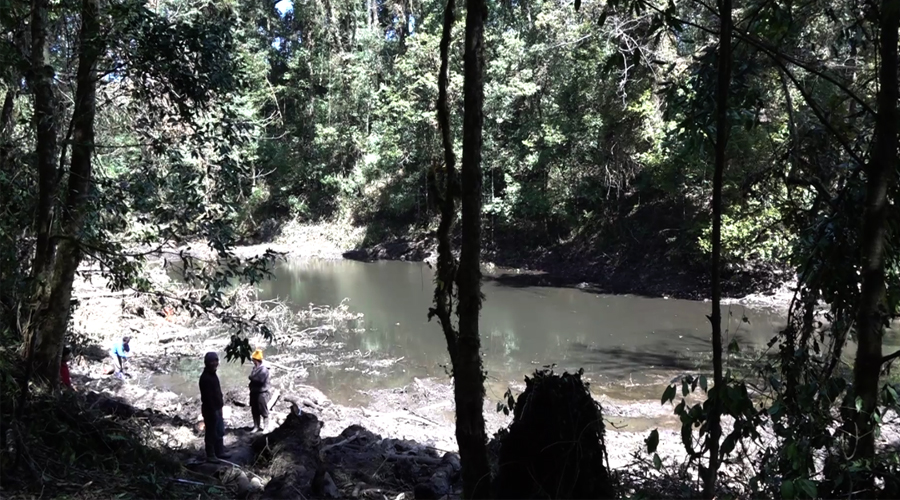
The residents of Tama village in Zhemgang will soon be reaping the benefits of their natural environment. A long-abandoned lake is being revived which will not only ensure a reliable supply of drinking for the villagers of Tama but also become an ecotourism hotspot in the district. Bhutan For Life, an innovative funding initiative of the WWF that provides funds to maintain the country’s protected areas and biological corridors is funding the revival project.
The lake is known among the locals of Tama as Tsho chhen. It is located at Tamala pass on the Zhemgang-Gelephu highway. It has dried up and diminished to the size of a stagnant pond. For years, the lake has remained covered in debris and logs which took the workers almost a month to clear.
“At the moment, we are taking out the debris. We took out weeds and logs from the lake. And we can already see water volume has increased. Now it looks like a real lake,” said Pema Dorji, site supervisor.
The revival project has raised the hopes of Tama residents of getting an uninterrupted supply of drinking water. The lake is their source of drinking water. 25 households in Tama have been facing an acute shortage of drinking water. They have been relying on rainwater and a small water source located atop Tamala.
“Our water source is below the lake. With the lake revival works ongoing, we are hoping it would benefit us in the long run as well. We are grateful to the Jigme Singye Wangchuck National Park for reviving our water source and I am sure it would benefit the community greatly,” said Sonam Tobgye.
“We have been facing a drinking water shortage in our village for the past few years. Now, with the revival of the lake, I am hopeful that our shrinking water source would be revived and address the water shortage. Although we have water in the tap, it is very small and unable to cater to all the villagers. But now, I am sure this project will ease our problem in the future,” said Ugyen Tenzin.
Bhutan For Life has allocated a budget of over Nu 400,000 to revive the lake. The revival works began in February.
The officials from the Jigme Singye Wangchuck National Park at Tingitbi said the site has the potential to become an ecotourism hotspot since it is rich in biodiversity and located just below the Zhemgang-Gelephu highway. The park office plans to initiate site development works in the future.
Pema Samdrup, Zhemgang









